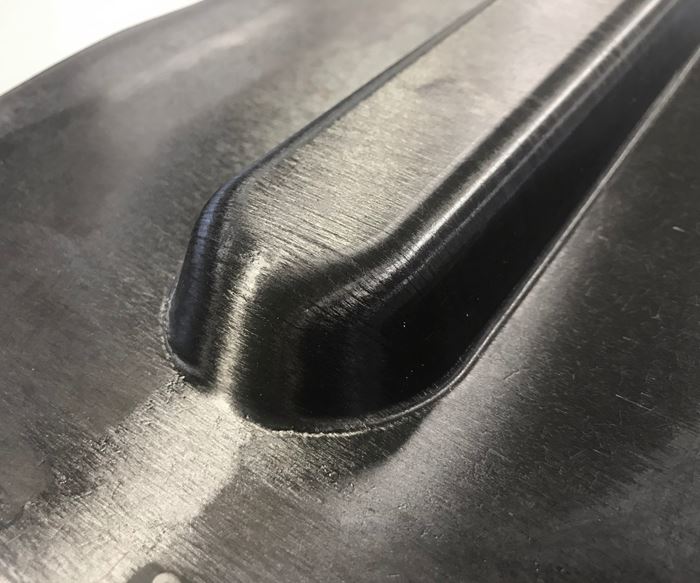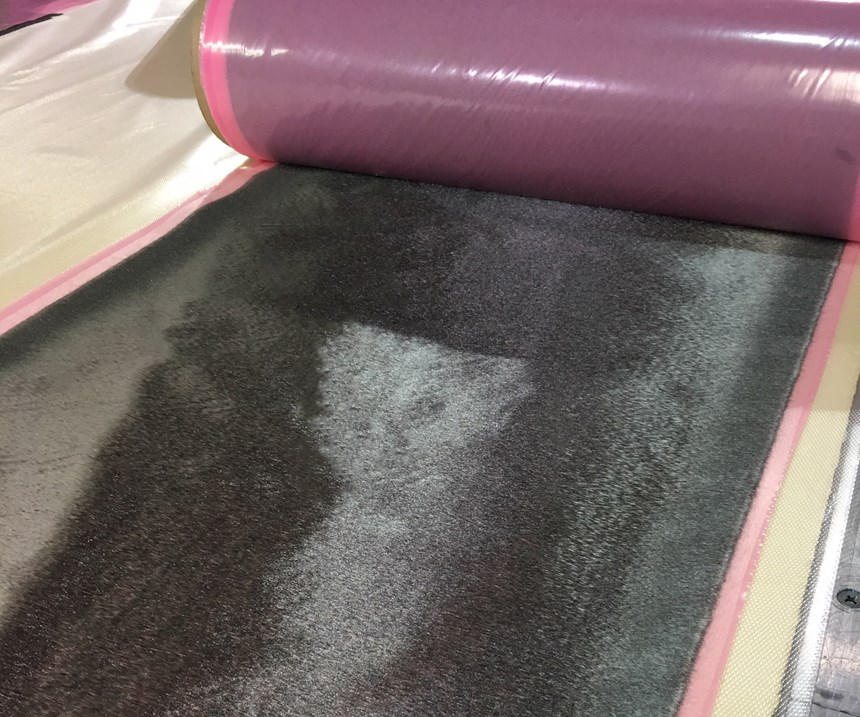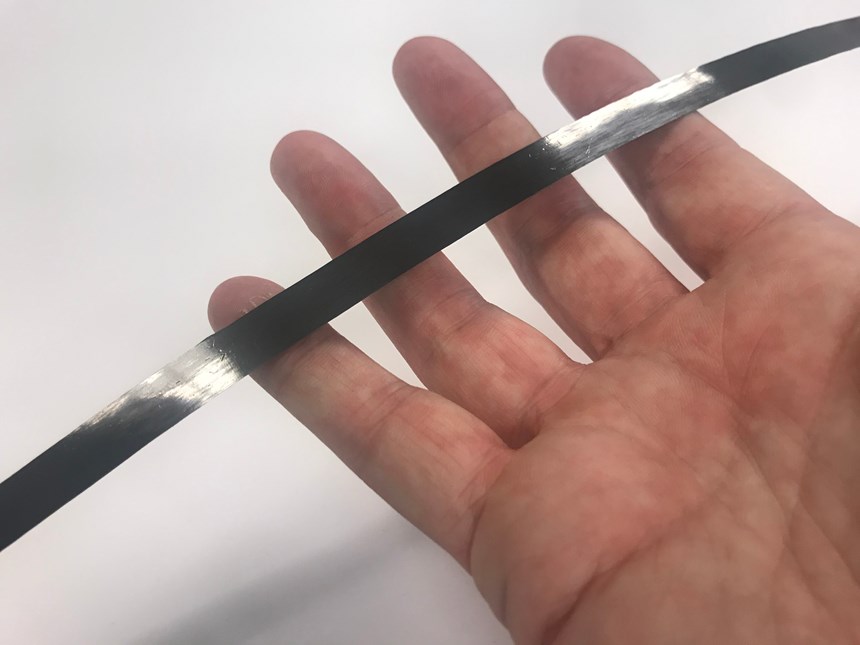JEC World 2019: Center for Composites Materials, University of Delaware
The Center for Composite Materials (CCM) at the University of Delaware introduced at JEC a new fiber-based product called TuFF (Tailored Universal Feedstock for Forming).
The Center for Composite Materials (CCM) at the University of Delaware (Newark, Del., U.S.) introduced at JEC a new fiber-based product called TuFF (Tailored Universal Feedstock for Forming), which is designed to integrate short fibers (particularly those from recyclate) into a 20-inch-wide unidirectional (UD) sheet. The novelty of TuFF is that CCM has developed a process whereby 95 percent of the short fibers in this UD material are aligned within ±5 degrees. John Tierney, senior scientist at CCM, says TuFF can integrate any fiber type with any resin type, but admits that most of CCM’s work has focused on use of carbon fibers and polyetherimide (PEI) resin. Features of the material include fiber volume fraction of 63 percent, equivalent properties compared to continuous IM7/8552 (well-known Hexcel carbon fiber/epoxy prepreg), 40 percent biaxial in-plane stretch, and easy and fast formability (~1 minute). Thin-ply formats are available, as are dry preforms and consolidated blanks, all in a variety of areal weights.
Parts on the CCM stand at JEC (see photo), made via rapid vacuum-forming, showed that TuFF offers good, homogenous stretching with minimal perimeter pulling or separation of material. “It behaves like metal in terms of material and processing,” says Tierney, adding that the material is adaptable for automated fiber and steered tape placement as well as material source for 3D printing/additive manufacturing. In addition, he notes that the use of thermoplastic resins makes TuFF easily recyclable. The team will present a number of papers on this new material technology at the upcoming SAMPE conference in Charlotte with TuFF materials on display in booth N42. The research that led to the development of TuFF was funded by the U.S. Defense Advanced Research Projects Agency (DARPA).
Related Content
-
Plant tour: Albany Engineered Composites, Rochester, N.H., U.S.
Efficient, high-quality, well-controlled composites manufacturing at volume is the mantra for this 3D weaving specialist.
-
Ultra-light woven reinforcement fabrics enhance space-grade parts
CAMX 2024: TeXtreme is showcasing its TeXtreme 0/90 woven fabrics, demonstrated through customer Kerberos Engineering’s satellite solar array.
-
Textile machinery, NCFs provide sustainable processing options
CAMX 2024: Karl Mayer is returning to CAMX with a focus on fabric- and fiber-handling equipment, in addition to its application development services.




![CCM University of Delaware, 250-gsm quasi-isotropic [0°/90°/45°/-45°] laminate made with highly aligned 3-mm carbon fiber](https://d2n4wb9orp1vta.cloudfront.net/cms/brand/CW/2019-CW/cw-19-blog-jec-ccm-tuff-closeup.jpg;width=860)












